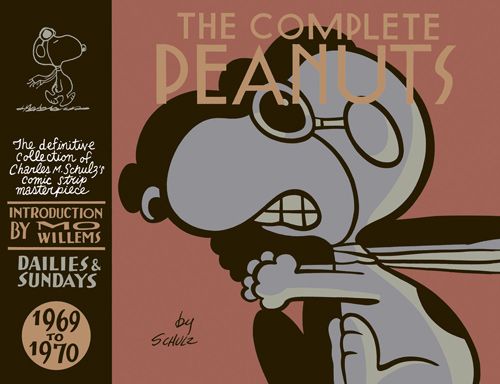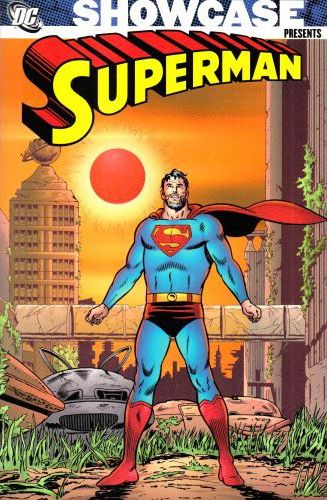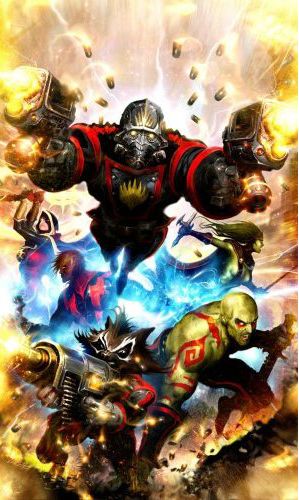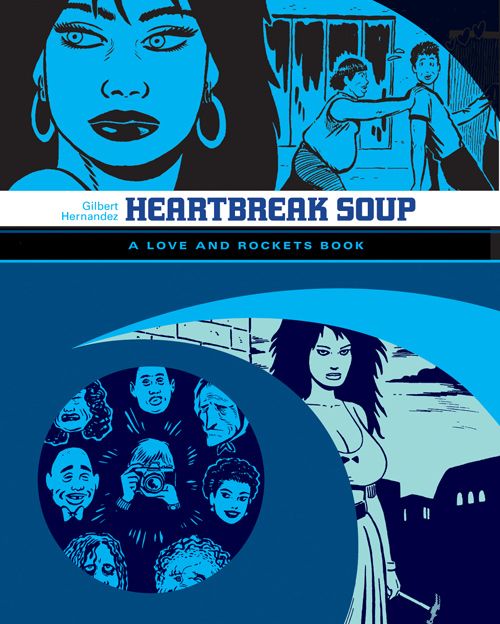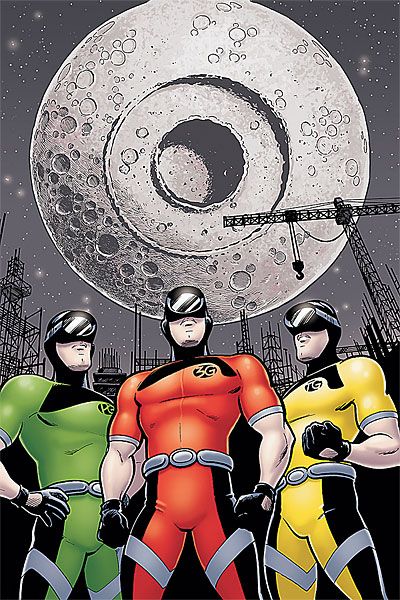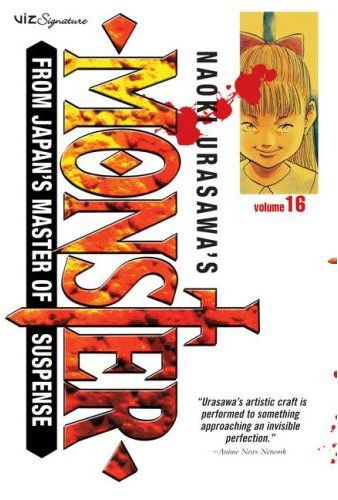Welcome to What Are You Reading, where we tell you what's currently in rotation in our homes, book-wise that is.
Our special guest this week is Jeff Lester, best known for his reviews and insightful comments over at The Savage Critics, though he's also made a name for himself as a writer on games like the recent Sam and Max series.
More on what Jeff and the rest of us are reading after the link ...
John Parkin: This week I finished the first Guardians of the Galaxy trade paperback. Why didn't anyone tell me this book was so good? Actually, they have; I just got around to getting it. In any event, it's a fun cast of characters (except for maybe Adam Warlock; I keep waiting for Drax to punch him) doing what they can to save the galaxy and not tear each other apart. Fun stuff.
Up next: Daybreak part 3 by Bryan Ralph and the second North World collection.
Lisa Fortuner: I made a trip out of my way and got as many floppies as possible from the past couple months. I'm catching up on Captain America and the Dark Reign Avengers tie-ins right now because for once Marvel has a crossover premise I like. I'm a sucker for stories with villains in power.
Tom Bondurant: I've been broadening my horizons with Heartbreak Soup. At first I was afraid that Beto was introducing so many characters I wouldn't be able to keep up with them, but the deeper I go into the book the better he manages everyone. The writing reminds me of Will Eisner's slice-of-life stuff from his later career (say, A Contract With God forwards), although Beto goes easier on his characters than Eisner did. Too bad it took me so long to catch up with these stories.
Otherwise, I maintained my superhero cred with Essential Dr. Strange Vol. 2, which goes through the Roy Thomas/Gene Colan issues (including Doc's surprisingly short-lived "superhero" phase) to the start of the Defenders and Doc's solo adventures in Marvel Feature. With Roy the Boy trying to make Stephen Strange trendy -- note the Tom Wolfe cameo -- and Colan giving all those weird dimensions a dose of late-'60s psychedelia, it's like they were trying to tailor the book to the hipsters who got high to the original Ditko. Now I'm into the Barry Windsor-Smith issues -- but Heartbreak Soup comes first, doggone it--!
Finally, this afternoon I reread the first three issues of Jeff Parker and Tom Fowler's Mysterius: The Unfathomable miniseries. I still don't have much sense of Mysterius as a character, and Delfi fares only a little better. Still, the dialogue is snappy, the art is endearing, and it's been a fun series so far. I especially like the
Dr. Seuss parody....
P.S. I forgot to mention the first issue of Irredeemable, by Mark Waid and Peter Krause. It was the scariest thing Waid's done since Empire, and I mean that in the best possible way.
Matt Maxwell: Criminal books 3 and 4.
Still one of the best crime books on the stands, if not one of the best books full stop. Three interconnected period pieces chain together, showing how lives in these low orbits collide and tangle each other (in V 3). V 4 shows the dark origins of Frank Kafka PI in a tale that starts as twisty crime but takes a sudden turn to madness. Both excellent reads, showcasing in particular Sean Philips' emotional range, showing glimpses of the stars as we're down in the gutter.
I was convinced this book was never going to come out, that the announcement and ship date of 4/1 were part of an involved April Fool's joke on DC's part. I am, thankfully, wrong on that count. Grant Morrison and Cameron Stewart return for more post-superheroes stuck in a world that has clearly passed them by. Hard to comment on part one of a serial other than to say that I'm very happy with things so far. Looking forward to the next one, very much so.
The Road by Cormac McCarthy
Oh wait, not a comic. But I did read it. I can still read prose, but I'm rusty...
Tim O'Shea: I'm taking a trip down memory lane by finally taking Richard Thomspon's suggestion from the January 25 edition of What Are You Reading? and reading Volume 10 of The Complete Peanuts. It's a trip down memory lane, as my family had many of the paperback collections from the 1969 to 1970 period. As a six or seven year old child, I remember thinking: "man, this series is not fun, I hope it gets better" and fortunately it did (after I flipped ahead, back then, I mean). The intro by Mo Willems is great insight into what appealed to many about the series (as well as providing a glimpse of how Willems creatively may have been influenced by Schulz). "And that is part of the magic of Peanuts: the ability to see-saw between heartfelt empathy for these little sketches and the heartless desire to see their lives get worse and worse so that we can laugh some more." One of the high points for me--when Chuck (I always liked Peppermint Patty's name for him) went on vacation and Snoopy was cared for by Lucy. Cared for may not be an apt description, what with it being Lucy. A 1960s/1970s-influenced low point? When Rod McKuen was the
punchline for a strip.
As much as I grumble about Mike Kunkel's scheduling challenges, I must admit that when an issue gets here, it is a delight to read. He jams more fun in one page than most creators and issue 4 of Billy Batson and the Magic of Shazam is more of the same darn fun.
Chris Mautner: I finally got around to finishing The Beats by Harvey Pekar and Ed Piskor, among many others. I hope to have a review up later this week, but the fact that it took me several weeks to get through the book should tell you a great deal about my opinion of it.
I also tore through A Mess of Everything, Miss Lasko-Gross' second volume of autobiographical comics, this time covering her tumultuous high school years. It suffers some of the same problems her first book, Escape From Special, had, though I think this is generally a much stronger work and shows a good deal of progression, both in terms of storytelling and artistry.
I also just (and I mean just -- I read the last page before coming over to type this) read the graphic novel adaptation of Waltz With Bashir, the art-house animated film about Israeli's first (i.e. 1982) war with Lebanon that got an Academy Award nomination but didn't win. I don't know how effective the film is, but the comic itself is something of a mixed blessing. The art style doesn't really fit the comic medium -- it feels very static and stiff, and the fact that every person seems to have the exact same expression on their face regardless of posture or what they're saying is odd to say the least. Perhaps it works better on screen though.
Jeff Lester: I finished reading Urasawa's Monster about a week ago, and immediately leapt into the first volumes of 20th Century Boys and Pluto. I loved 20CB and quite liked Pluto, the latter of which reminds me, oddly, of Alan Moore's Marvelman (or Miracleman, depending on which side of the pond you're on, I guess) in the way Urasawa is taking characters from a more innocent time and looking at them through contemporary traditions.
And after waiting in vain for Tokyopop to publish another volume, I've started reading Beck: Mongolian Chop Squad in scanlation. I had a recent afternoon where I read 20 chapters in the course of a couple hours, and I can't remember the last time I felt so decadent. I still feel conflicted about reading work online and unauthorized, but I waited for over six months for Tokyopop to do right by me and couldn't hold out any longer.
In the evenings before bed, I've been making my way through DC Showcases a few issues at a time. Growing up, I was the very model of a modern major Marvel zombie, and so reading DC material from the silver age has been both enlightening and entertaining. I'm on Volume Four of Superman, and just finished the story where Luthor escapes from the planet Roxar with three super-powered androids with which he plans to defeat Superman. (His plan, I should note, is having one of the androids, made out of lead, stand in front of the other, made out of Kryptonite, until the crucial moment where the lead android can step aside: it's a master plan on par with having someone shove Superman in the chest while somebody crouches on all fours behind Superman's legs.)
Also being read in piecemeal fashion is The Comics Journal 6: The Writers (edited by the erstwhile Tom Spurgeon), for which a more accurate title might have been "Gary Groth Browbeats Bewildered Comics Writers." Although I've already read most of these, thanks to a sizeable TCJ monkey on my back in my teens and twenties, I forgot how frank and confrontational Groth could be, and it's honestly a bit of a relief to watch the interviews get less and less rough-and-tumble as the book progresses. Comics professionals frustrated about their treatment on the Internet should read this book, so they can realize how easy they have it.
As for prose, I finally, finally, FINALLY finished Bolano's 2666, which over the course of its 900 pages all but challenges the reader to discern in what way, if any, literature can truly matter in the chaos and horror of the world. While I do my best to answer (or forget the question altogether), I think I may retrench and revisit John Ashbery's Other Traditions: the poets profiled in this book of Ashbery's lectures wouldn't be at all out of place in Bolano's novel. Between it and the story of “Superman Red and Superman Blue” (somewhere in that Showcase), I may find something like a safe haven.

